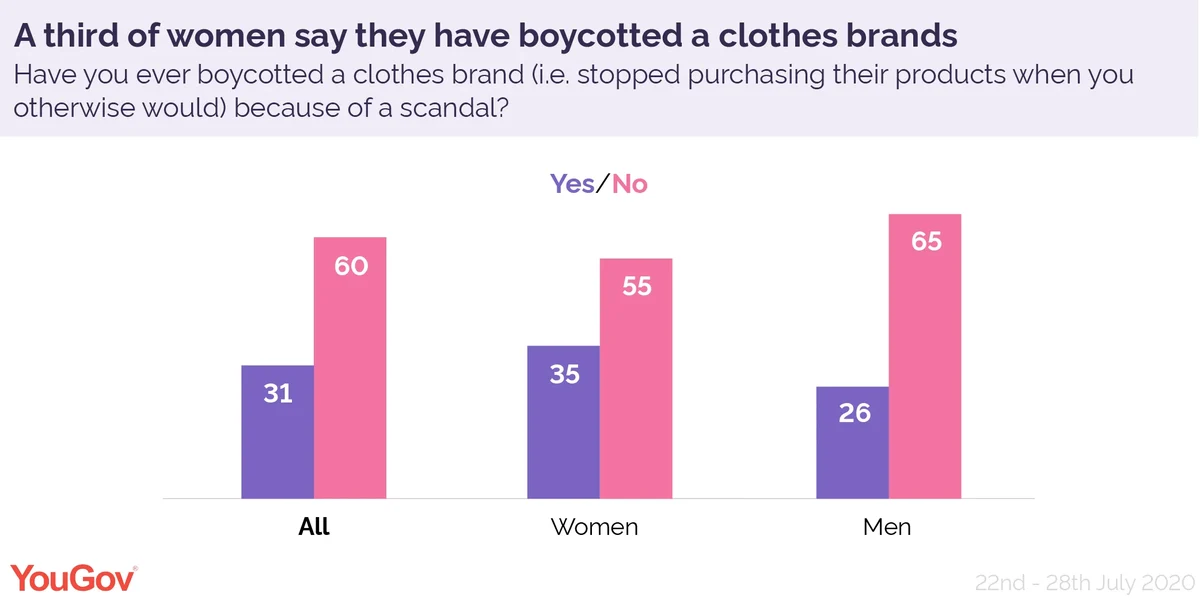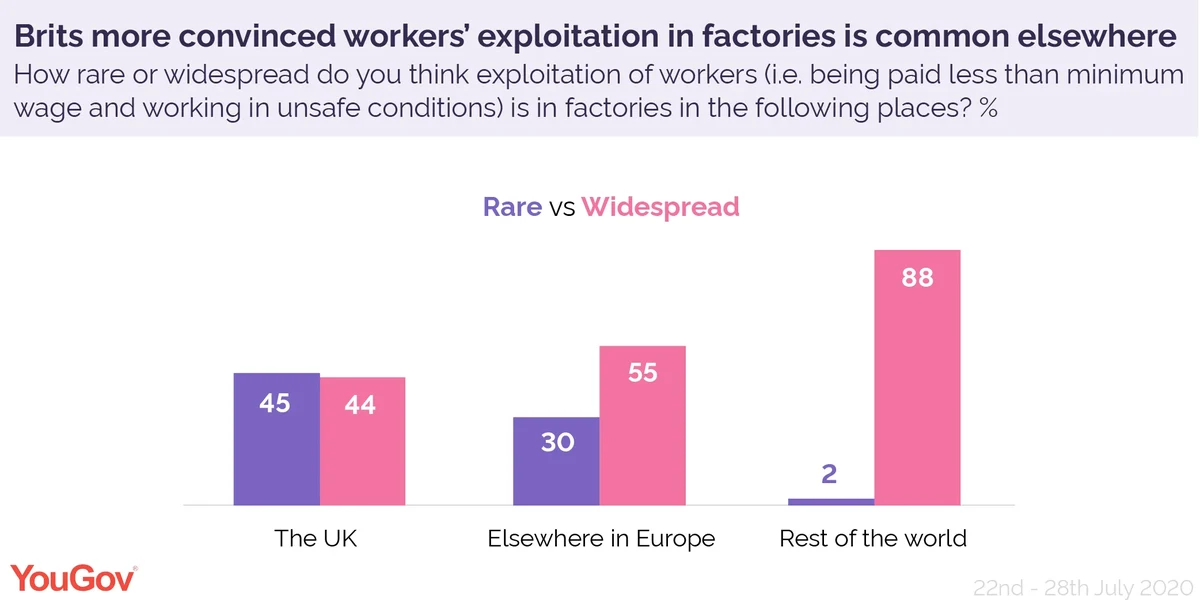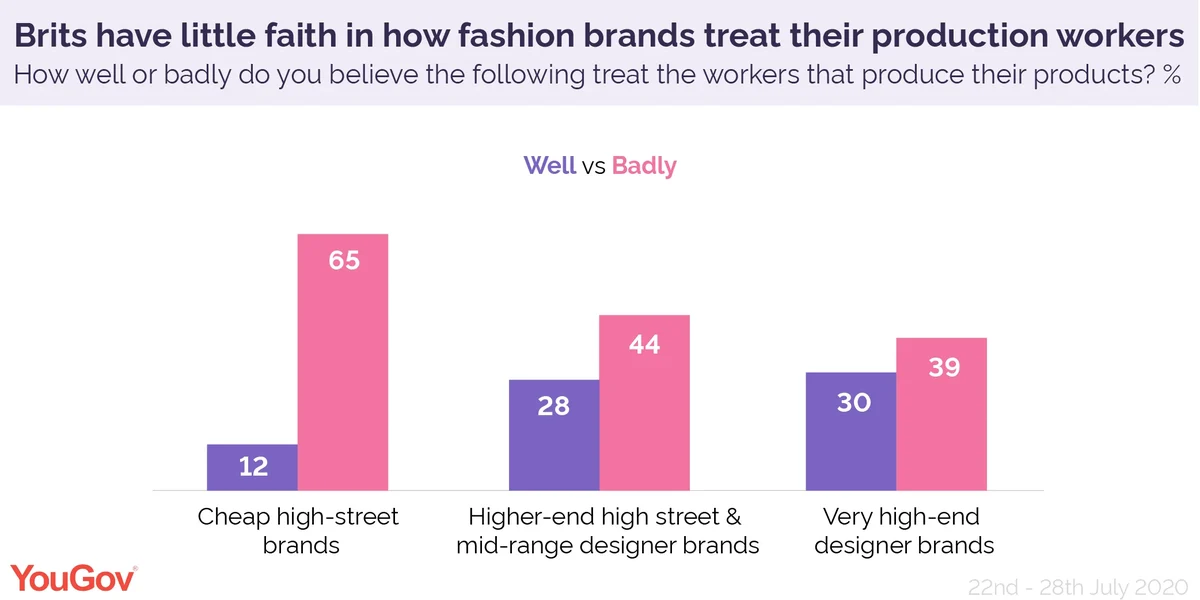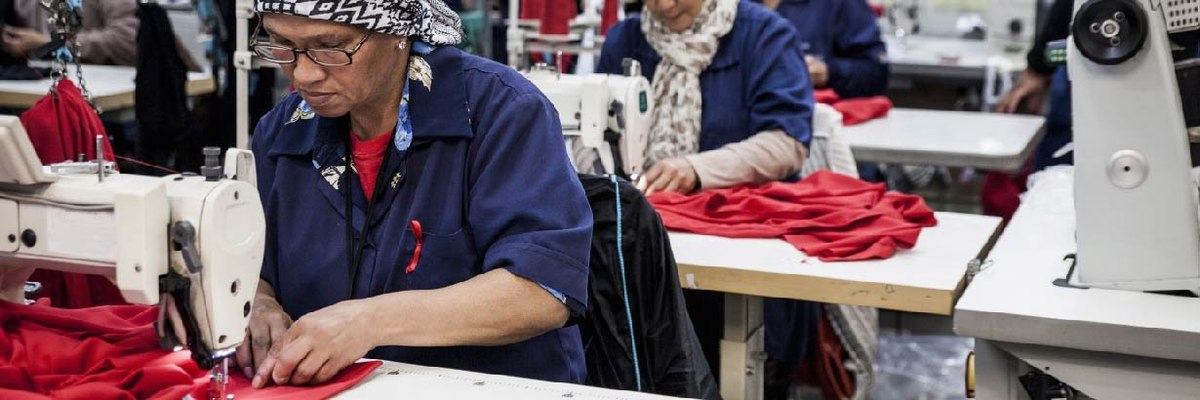Over two in five people (44%) believe worker exploitation is common in UK factories and a plurality think even high-end designers treat their production staff poorly
The pandemic has exposed poor conditions and exploitation in some UK factories. But only three in ten people (31%) have stopped buying clothes from a brand because of such a scandal.

Women are more likely to vote with their wallet, with just over a third (35%) having stopped buying from an apparel company for this reason, while the same is true for just a quarter of men (26%).
While millennials and Gen Z’s are often criticised for being overly “woke”, there’s in fact little difference evident across age groups. A third of 18- to 24-year olds (33%) have boycotted a clothes brand, compared with three in ten people aged 55 and older (30%).
People in social grade ABC1, meaning they tend to be professionals, are very slightly more likely to have stopped buying a fashion brand (33%) than those in group C2DE, who often do manual work, (28%).
Many Brits are still convinced exploitation is rare in the UK
The public are tied on whether worker exploitation, such as paying less than minimum wage and providing unsafe conditions, are common in UK factories or not. Two in five people (45%) believe it’s either fairly (38%) or very (7%) rare. A similar number (44%) say it’s fairly (36%) or very (8%) widespread.

Older people are the most cynical, with half of those aged 55 and over (51%) believing exploitation is prevalent, compared with about a third of 35- to 44-year-olds (35%) – the lowest of any group.
While Brits are split on the state of UK factories, a majority believe exploitation is common elsewhere in Europe (55%), including one in seven (14%) who think it’s very widespread. Likewise, nearly nine out of ten people say such practices are rife in the rest of the world, while only 2% believe they are rare.
Price matters… to an extent
Generally, people think pricier brands are more likely to treat their production staff well. But a plurality still believe clothes companies treat their workers poorly regardless of price.

Cheap high-street brands have the worst reputation, with two thirds of the public saying they treat their production workers fairly (40%) or very (24%) badly. Only one in eight (12%) believe they treat their staff well.
Higher end high street and mid-range designer brands fare slightly better. But a plurality of 44% still think they are bad towards toward their production workforce, while three in ten believe (28%) the contrary.
Two in five Brits (39%) also take a dim view of how high-end designer brands treat their production employees, while 30% are more optimistic.










